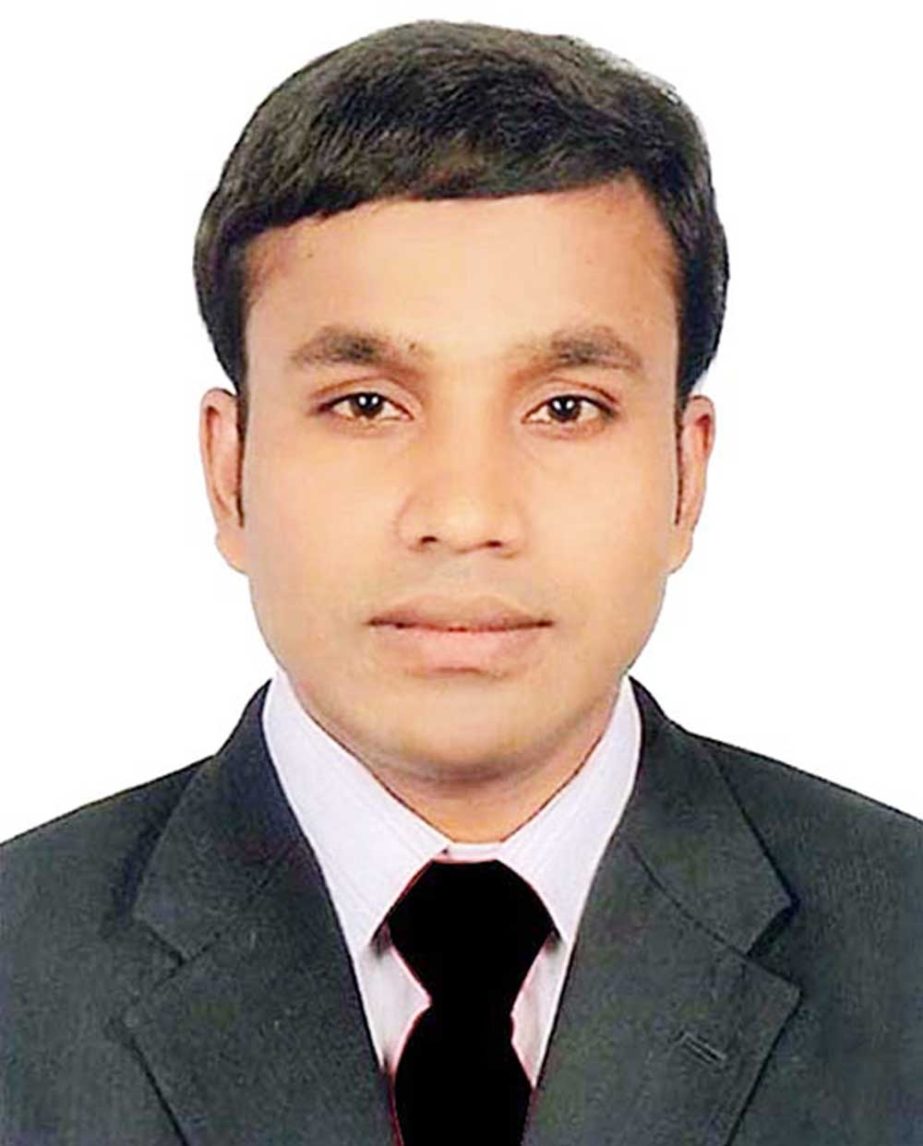
Barrister Md. Solaiman (Tushar) :
Muskan Khan (hereafter referred to as Muskan) is the voice of minority people all over the world. Muskan fought to establish her rights. This right is protected under the Constitution of India and some other international laws. Muskan is now regarded as the voice of the minority people all over the world. Everyone should protest like Muskan to ensure his/her rights.
Muskan is a B.Com second year student at a pre-university college in Mandya district of Karnataka in India. A recently viral video shows a group of young men in saffron shawls at PES College in Mandya of India with chanting ‘Jai Shri Ram’ bullied a Muslim girl for wearing hijab – a scarf-like dress to cover her head. The brave girl Muskan stood in defiance of the mob and yelled back ‘Allah-hu-Akbar’. Later Muskan told NDTV, I was not worried. When I entered the college they were not allowing me just because I was wearing the burqa. They started shouting Jai Shri Ram. So, I started screaming ‘Allahu Akbar’. Wearing hijab for Muslim women is a right and this right is protected under the Constitution of India, and International Laws.
According to the 2011 census, 79.8pc of the population of India practices Hinduism, 14.2pc adheres to Islam, 2.3pc adheres to Christianity, 1.7pc adheres to Sikhism, 0.7pc adheres to Buddhism, and 0.4pc adheres to Jainism. According to data, the Islam is the second largest religion in India. All authorities including Prime of Minister of India Shri Narendra Modi have a duty to ensure constitutional rights of every citizen. They should respect all beliefs. But allegation says that Muslim people are not capable of performing their religious activities there freely. According to Reuters report (June 2017) 24 Muslims have been killed and 124 injured since 2010 in cow-related violence. Under Article 14 of the Constitution of India, the State shall not deny to any person equality before the law or the equal protection of the laws within the territory of India. Article 15 of the Indian Constitution prohibited any dissemination on the grounds of religion, race, caste, sex, or place of birth. Article 19(1) (a) ensures freedom of speech and expression for every citizen of India. Under Article 21 of Indian Constitution, no person shall be deprived of his life or personal liberty except according to procedure established by law.
Under Article 25(1) of the Constitution of India all persons are equally entitled to freedom of conscience and the right freely to profess, practice and propagate religion. According to Article 26 of the Constitution of India, every religious denomination or any section thereof shall have the right- (a) to establish and maintain institutions for religious and charitable purposes; (b) to manage its own affairs in matters of religion. Article 29 (1) of Indian Constitution narrates, any section of the citizens residing in the territory of India or any part thereof having a distinct language, script or culture of its own shall have the right to conserve the same.
The Indian Prime Minister has therefore a duty to ensure all rights and beliefs under the Constitution of India, international laws and treaties. Freedom of thought and religion are protected under Declaration of Human Rights (UDHR). The UDHR is an international treaty and accepted by the United Nations General Assembly as Resolution 217 at its third session on 10 December 1948. The UDHR ensures the rights and freedoms of all human beings. India was a signatory to the Universal Declaration of Human Rights.
Therefore Indian authorities have a duty to ensure all beliefs and thought under the UDHR. Under Article 18 of the UDHR, ‘Everyone has the right to freedom of thought, conscience and religion ; this right includes freedom to chance his religion or belief, and freedom, either alone or in community with others and in public or private, to manifest his religion or belief in teaching, practice, worship and observance’.
Under Article 18 of the International Covenant on Civil and Political Rights (ICCPR), ‘Everyone shall have the right to freedom of thought, conscience and religion. This right shall include freedom to have or to adopt a religion or belief of his choice, and freedom, either individually or in community with others and in public or private, to manifest his religion or belief in worship, observance, practice and teaching’. India ratified the ICCPR adopted by the General Assembly of the United Nations (UN) on 19 December 1996. Freedom of thought and freedom of religion are protected under the Constitution of India and other international laws. The authority should take action against the lawbreakers. If any authority fails to take action against any miscreant or religious extremist, then such authority must be prosecuted as per law. Minorities are affected by majorities not only in India but almost all over the world. Their rights are flimsy, but authorities are soundless.
There have also been several incidents regarding abuse of rights of minorities in Bangladesh. The Bangladesh authorities have a duty to ensure rights of every citizen including all. In addition to the authority, every citizen has a moral duty to help each other if anyone is affected. This duty comes from natural laws. Anyway, if anyone is affected they should protest like Muskan to ensure their rights which are protected under national and international laws. Additionally, every authority should perform their duties to ensure individual’s rights. As all are equal before the law, everyone should respect others’ rights and beliefs. Everyone should treat other as human being not to treat as Muslim, Hindus and Christian etc.
Although at the time of protest Muskan was alone, her voice was so loud. This voice spreads all over the world. Muskan is our Hero. Her protest was like Pramila of the Epic Meghnad-Badh (Meghnad Badh Kavya) of Michael Madhusudan Dutta. Salute Muskan!
(Barrister Solaiman is a member of The Honourable Society of Lincoln’s Inn, and member of Dhaka Bar Association).

